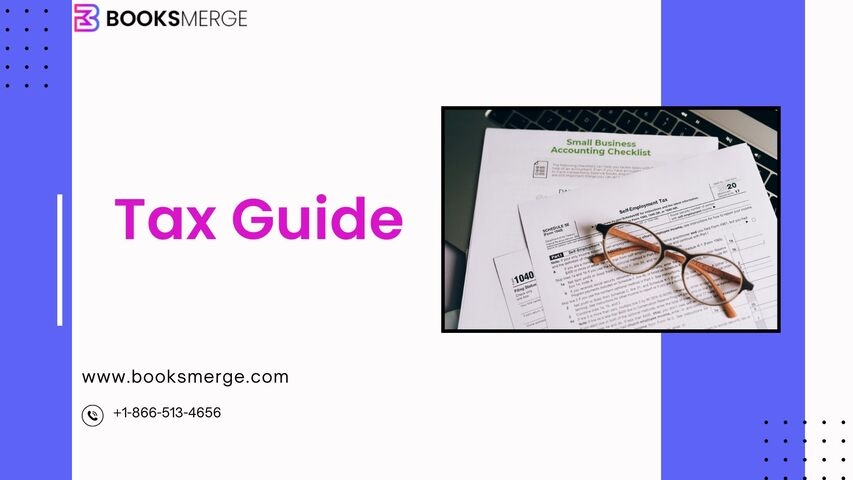This 2025 tax reference guide provides clear, actionable steps for small business owners. Learn key deadlines, smart deductions, and filing strategies to save money and avoid stress this tax season.
Let's be honest. For many entrepreneurs, "tax season" feels less like a season and more like a sudden storm you have to navigate without a map. The paperwork, the fear of mistakes, the confusing terms it is enough to make anyone want to hide. But what if you could approach your taxes with a sense of control? This tax guide is designed to be your roadmap. It breaks down the process into manageable steps, empowering you to file with confidence and keep more of your hard earned money.
Laying the Groundwork: Your Pre-Filing Checklist
Successfully navigating tax season begins long before you sit down to file. A little preparation transforms a chaotic scramble into an organized process.
Get Your Documents in Order
Think of this as gathering your ingredients before you start cooking. Create a dedicated folder (digital or physical) for the current tax year. Essential items include:
- Prior year's tax return
- Profit and loss statements
- Bank and credit card statements
- Receipts for business purchases
- Invoices sent and received
- Mileage logs
- Payroll records
Understand Your Deadlines
Missing a deadline is an easy way to trigger penalties. Mark these key 2025 dates for calendar-year taxpayers:
- January 15, 2025: Final quarterly estimated tax payment for 2024 is due.
- April 15, 2025: 2024 Individual Tax Returns (Form 1040) and first quarterly estimated tax payment for 2025 are due.
- June 16, 2025: Second quarterly estimated tax payment for 2025 is due.
- September 15, 2025: Third quarterly estimated tax payment for 2025 is due.
Maximizing Your Money: Deductions and Credits
This is where a great tax guide pays for itself. The goal is to legally minimize your taxable income, and that means understanding what you can write off.
Commonly Overlooked Deductions
Beyond the obvious office supplies and rent, consider these:
- Home Office: If you have a dedicated workspace, you may qualify for the home office deduction.
- Software Subscriptions: Cloud accounting, project management, and CRM tools are fully deductible.
- Professional Development: The cost of workshops, courses, and industry conferences can be written off.
- Marketing and Advertising: This includes everything from your website hosting to business cards.
- Interest on business loans and credit cards.
The Power of Retirement Contributions
Contributing to a SEP IRA or a Solo 401(k) is a powerful double play. You save for your future while simultaneously reducing your current year's taxable income.
Navigating Common Tax Situations
Your business structure and activities dictate which forms you'll need. This is a core part of any useful 2025 tax reference guide.
If You're a Sole Proprietor or Single-Member LLC
You will report your business income and expenses on Schedule C, which you file with your personal Form 1040. Your net profit is subject to self-employment tax.
If You Have Employees
You are responsible for payroll taxes, filing Forms like 941 quarterly, and issuing W-2s at the end of the year.
If You Work with Independent Contractors
Anyone you pay more than $600 to for services should receive a Form 1099-NEC from you by January 31st.
Steer Clear of These Costly Mistakes
Even with the best intentions, small missteps can be expensive.
- Mixing Personal and Business Finances: This is the number one bookkeeping headache. Use separate bank accounts and credit cards.
- Poor Record Keeping: A shoebox full of receipts is not a strategy. Use a digital app to track expenses as they happen.
- Filing Late or Not Paying Estimated Taxes: The IRS charges penalties for both, making procrastination a costly habit.
Read Also: Form 6765 Instructions
BooksMerge Insight: Your Year-Round Tax Partner
At BooksMerge, we believe tax planning should not be a once-a-year panic. It is a continuous, strategic part of running a healthy business. Our approach is to be your guide long before April arrives. We help you set up systems for flawless record-keeping, provide reminders for quarterly payments, and offer proactive advice to optimize your tax position throughout the year. We turn the complexity of this tax guide into your everyday reality, giving you the freedom to focus on growth, not just compliance.
Conclusion
Think of this 2025 tax reference guide as your first step toward a new relationship with your business finances. By getting organized, understanding your deductions, and knowing your deadlines, you shift from being a passive participant to an active, confident leader in your financial journey. Remember, the goal is not just to file a return, but to use the tax system to your advantage, fueling your business's future growth.
Frequently Asked Questions
What is the difference between a tax deduction and a tax credit?
A deduction reduces your taxable income, while a credit directly reduces your tax bill, dollar for dollar. Credits are generally more valuable.
Do I need to pay quarterly taxes?
If you expect to owe $1,000 or more when you file your return, the IRS requires you to make quarterly estimated tax payments.
What happens if I cannot pay my tax bill in full?
Always file your return on time, even if you cannot pay. You can set up a payment plan with the IRS to avoid heavier penalties.
How long should I keep my tax records?
It is wise to keep all supporting documents for at least three to seven years from the date you file your return.
When should I consider getting professional tax help?
If you have employees, complex investments, or simply want to ensure you are maximizing every opportunity, professional guidance is invaluable. For personalized support, you can call BooksMerge at 866-513-4656.
You May Also Visit: Form 6765 Instructions





Comments